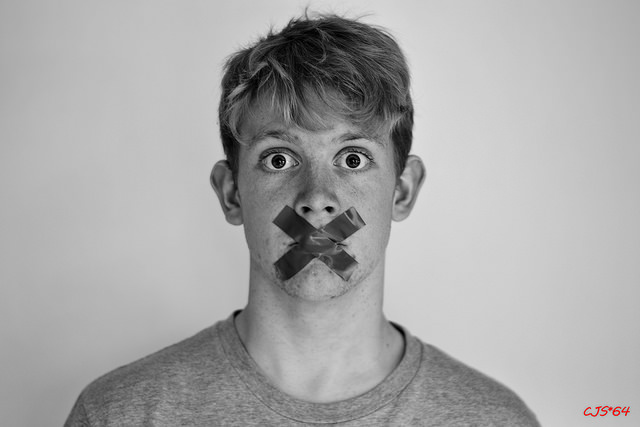It’s not a new phenomenon but it seems all the more prevalent as social media seeps into every gap of our lives.
Where there used to be more moments for quiet contemplation most of us are deafened by the din of other people’s opinions summed up in memes and posts.
In the midst of one of the most divisive elections in history it seems that the prevalence of name-calling, blaming, and picking sides is only increasing. Whether it’s about a gorilla, police brutality, gun violence, or minimum wage, people on both sides of the arguments seem to get off on standing in righteous indignation.
Have we become addicted to our outrage? I think we have.
There is something so overwhelmingly pleasing to our egos about feeling we are on the “right” side of an issue. Having the moral high ground makes us feel powerful. Not only that, but it seems that social media encourages the idea that if we stay silent we are consenting to whatever the atrocity of the day is, so we are guilted into sharing the outrage.
I’ll admit that I have become easily wrapped up in proving my political points on many occasions, as if I just couldn’t help myself. And it felt good, really good to be more right, more intelligent, more informed.
The problem with this is that within our little echo chamber of social media, we often don’t leave any room for conflicting opinions.
I see at least one post a week that says “If this is what you believe unfriend me now.” Although I do believe these people think they are doing the right thing and standing up for their beliefs, what they are really doing is creating an environment where only people who agree with them get to speak. Silencing everyone who disagrees is certainly not the best way of expanding your mind, developing compassion, or growing as a human. If that is really our aim, how can we do it if we lump all dissenters into the same category?
David Brin, Ph.D, wrote an article on his website about the brain chemistry involved in addictions and how self-reinforcement can be as deeply addictive as drugs. He says:
“The pleasure comes from knowing with subjective certainty, that you are right and your opponents are deeply despicably wrong. Sanctimony, or a sense of righteous outrage can feel so intense and delicious that many people actively seek to return to it again and again.”
But how is this damaging? I think that our addiction to, as one writer called it, “outrage porn” serves to fuel the divide between us. Whether it causes us to feel the world is a terrible place, or to take up our entire day arguing with another person, it doesn’t open us up to the reality that life is not black and white. It also disallows us to cultivate compassion for each other. If I am “right” and you are “wrong,” then I have demoted you. I don’t have to have empathy for you. I certainly don’t have to try to reach out in a loving way and change your heart. Instead I get to stand in judgment of you, feeling really good about myself since I feel I have moral superiority.
The further we commit to this outrage the bleaker the world looks. When the future looks dismal, how capable will we be of changing anything? If we fill ourselves will hopelessness, how can we carry a message of hope for others?
We literally must be the change. We must be more loving and compassionate if that’s the world we wish to live in. It is a moral imperative for us to accept everyone at the soul level. Even if we don’t accept their beliefs.
Every single one of those people that you despise was once a child who had no prejudices, no judgments. Their upbringing and their guardians instilled these thing in them. Try to have compassion for that child and the innocence that was lost.
I personally believe that the last thing we need is more arguing online, more outrage, and more sense of righteous superiority. It is just a massive ego trick that pulls us further and further away from what we truly want to achieve. We can recognize injustice, but instead of fueling the hateful rhetoric of the other side, we can use it to inspire us to be more loving and to help those who need help. Sharing a violent video on Facebook doesn’t accomplish that. Getting involved in your community and reaching out with compassion to others does.
We can’t change minds with a closed heart. No one has ever been shamed and bullied into dropping their prejudices. As cliché as it may be to bring up Dr. Martin Luther King, he is the perfect example of love being used to change minds and hearts. He accomplished more than any social media banner ever will. He reminds us:
“The question is not whether we will be extremists, but what kind of extremists will we be. Will we be extremists for hate or for love?”
We can only change the world if we start with ourselves. As good as “outrage porn” seems to feel in the moment, it is only serving to further divide us, separating us from the end goal of love and acceptance that I think most of us, at least at a soul level, really want.
Every life has worth, not just those we agree with.
The biggest act of rebellion now is to continue to spread love in the face of divisiveness and to never give up hope that compassion can and will trump hate and change hearts.
~
Author: Alexis Lawson
Image: Craig Sunter/Flickr
Editors: Katarina Tavčar; Catherine Monkman







Read 2 comments and reply